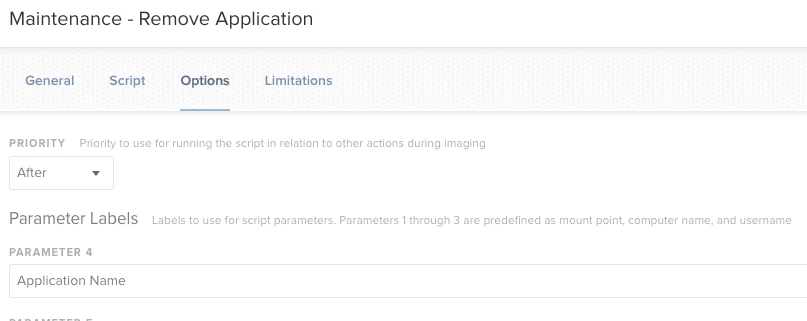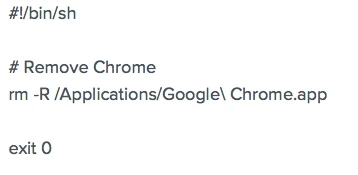Trying to create a script (python or bash) to push out in a policy via Jamf Pro to delete Google Chrome.app from a system. I've tried various scripts online (new to scripting sorry) and everything fails. I'm currently testing this script and trying to run it manually using bash chrome-uninstall.sh but it keeps saying command not found. What am I doing wrong?
#!/bin/bash
# Remove Chrome
rm -rf /Applications/Google Chrome.app/
exit 0








